Would you like to copy text from a protected web page but you don't know how? We know that it may be frustrating when you need to copy and save some information but the web page doesn't let you do that. You may have a problem with copying text when pages have technical restrictions, embedded content or legal restrictions. Keep on reading as you will find the solution to these issues in this guide. We will show you how to copy text from a protected web page in 4 different ways. And the most recommended way is to use the browser printing feature to copy the text.
Part 1. Why You Cannot Copy Text from a Protected Web Page
So, why is it that you cannot copy any text from a protected web page? There can be various reasons, which we will go over in this section.
Technical Restrictions: JavaScript, CSS & HTML Techniques
Some websites may want to restrict their content due to various reasons such as legal ones (which we'll talk about later on in this section). This can be achieved by implementing special codes and attributes, for example, Javascript, CSS or HTML attributes to disable copy functions.
Embedded Content
Embedded content can be another reason why you cannot copy text from a web page easily. This includes flash content. For example, older sites using flash restrict will not allow you to copy content which is embedded within flash objects. Moreover, PDFs and other documents formats embedded on a website can contain built-in restrictions which will prevent you from copying content. Finally, Digital Rights Managament (DRM) technologies can protect media and content. This will also limit copying and distribution of the contained content.
Legal Restrictions
Legal restrictions are another reason why certain websites don't allow copying content. This is to prevent people from using copyrighted information. A futher example is watermarking. Invisible digital watermarks are added to the text, which track and deter unauthorized copying of data. User agreements are another restriction that require users to agree to site terms. Suchi terms can state that copying of content is forbidden when accessing the site.
All restrictions aim to protect content from unauthorized use, and ensure compliance with legal and ethical standards.
Part 2. How to Copy Text from a Protected Web Page
Now that you know why some web pages are restricted, it's time to show you the ways of how to copy content that is protected. We will show you to copy text by using different options such as a print feature, screenshots and OCR, disabling JavaScript or using a Chrome extension.
Way 1. Copy Text from a Protected Web Page with a Print Feature
One of the easiest ways of copying text from a protected web page is using a print feature and then copying it with a dedicated PDF editor. The perfect software for this is UPDF that can help you copy partial text from a PDF as well as whole content from one PDF or multiple PDF files.
UPDF should be your go-to PDF editor as it has all features that you may need to successfully copy text from protected web pages. Moreover, it includes many advanced PDF editing features that can save you time and make your documents stand out. For instance, you will be able to easily amend PDFs, add annotations, images as well as generate ideas with AI.
The software has a free version available, click the below button and follow the below guide to copy text from protected web page. It also has the paid version which can unlock all features and is very cost-effective. Most of other software don't have as cheap lifetime licences as UPDF. You can upgrade to UPDF pro version at a big discount.
Windows • macOS • iOS • Android 100% secure
Now we will show you how to copy text from a protected web page with a print feature, and UPDF.
Step 1. Print the Protected Web Page
The first step will be clicking the three vertical dots in the top right corner of your browser and choosing the "Print" option.
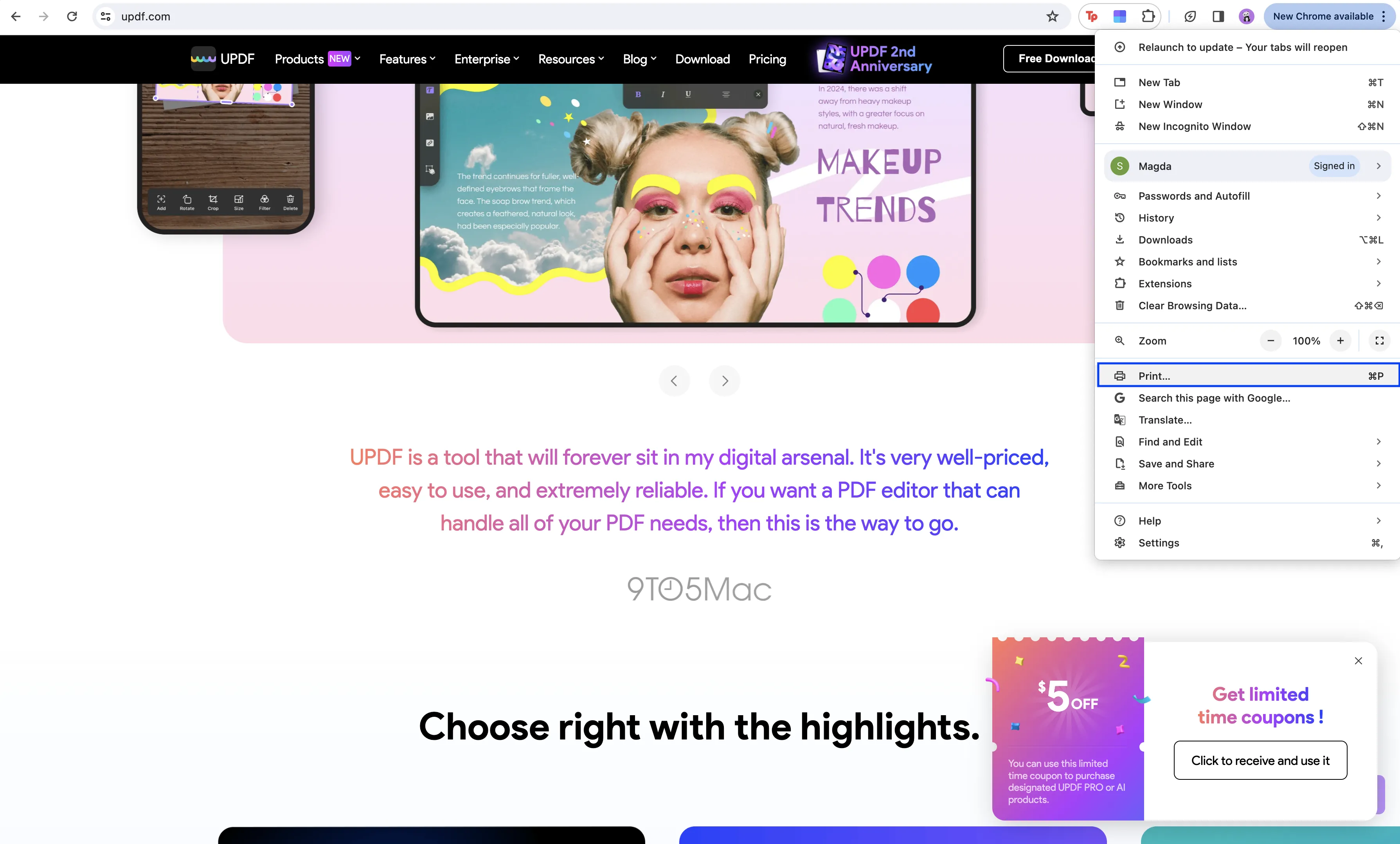
Make sure that "Save as PDF" is selected in the Destination field and click "Save". The web page will be saved as PDF on your device.
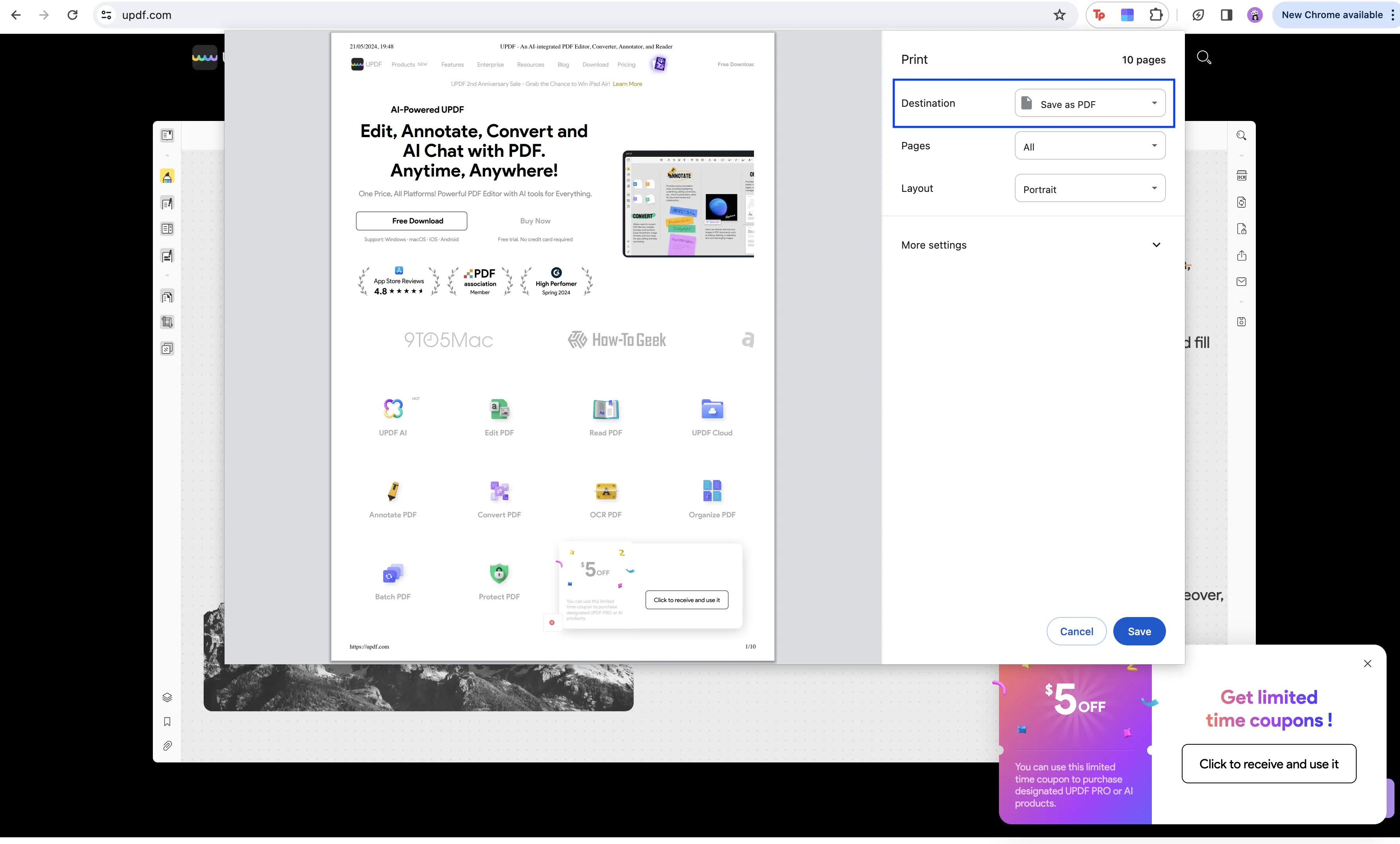
Step 2. Choose a Method to Copy Text
Once the web page is saved as your PDF, you need to think about what type of method you want to choose in terms of copying the content. There are three different methods you can use with UPDF such as copying partial text, copying all text from one web page (PDF) or copying all text from multiple web pages at once (multiple PDFs).
We will talk you through how to use each method step by step. Before getting started, you can click the below button to download UPDF. Then, you can follow the guide.
Windows • macOS • iOS • Android 100% secure
Method 1. Copy Partial Text from the Protected Web Page
The first method is copying partial text, which is pretty straightforward. Open your saved PDF in UPDF by dragging it onto the software's interface. Once your PDF document is open, just highlight the content and then click the "Copy" icon, "Command" + "C" on Mac or "Ctrl" + "C" on Windows. Then you can paste the text in another document of your choice.
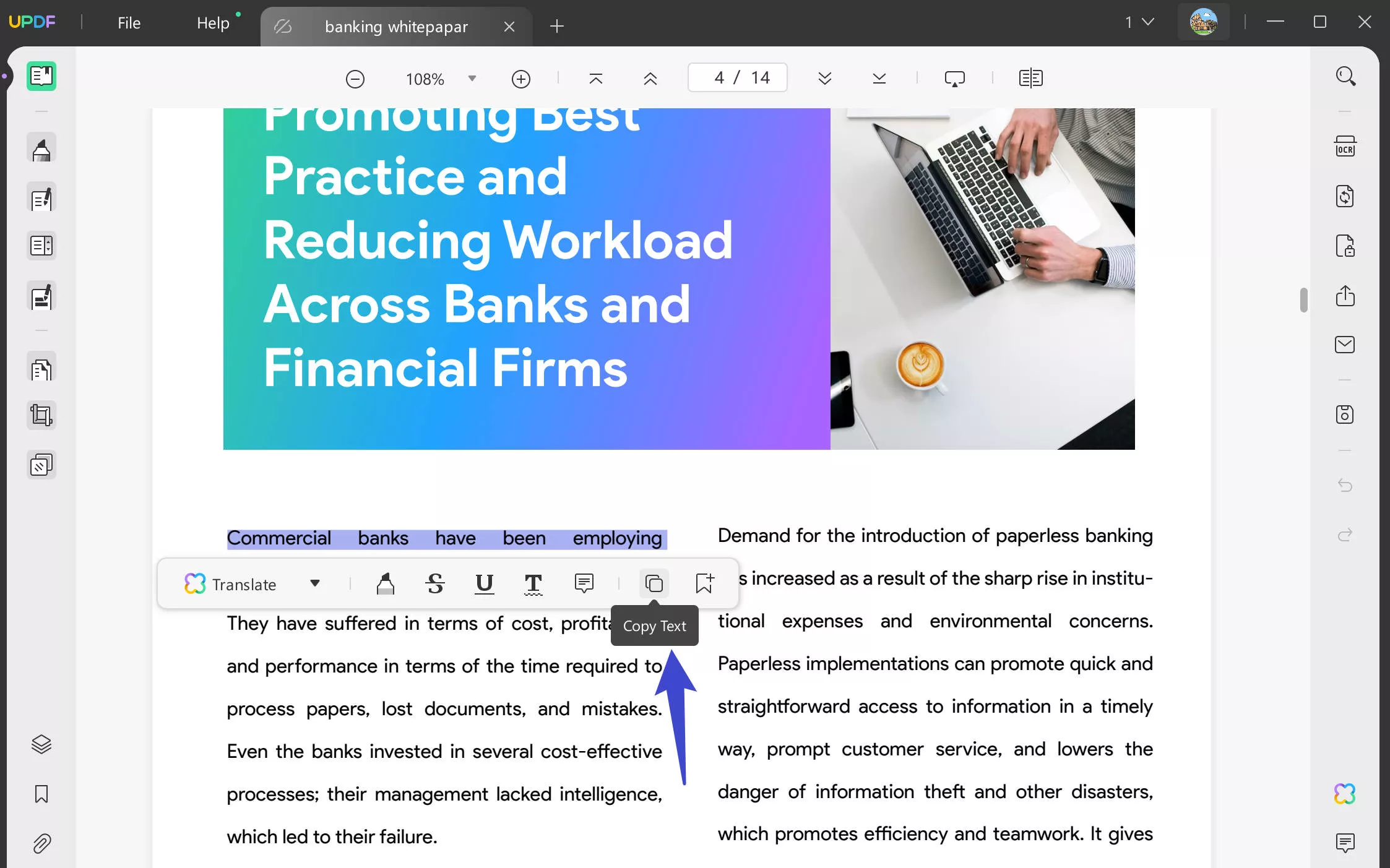
Method 2. Copy All Text from One Protected Web Page
If you would like to copy all text that a protected web page contains, UPDF can help you with the process. Remember to download UPDF to try this method by yourself.
Windows • macOS • iOS • Android 100% secure
Just drag your saved PDF onto the UPDF's software and navigate to the menu on the right side. Click the "Export PDF" icon and choose "Text (.txt)". This option will convert your PDF and export text. After the file is exported, you will be able to copy the whole content and paste it wherever you want.
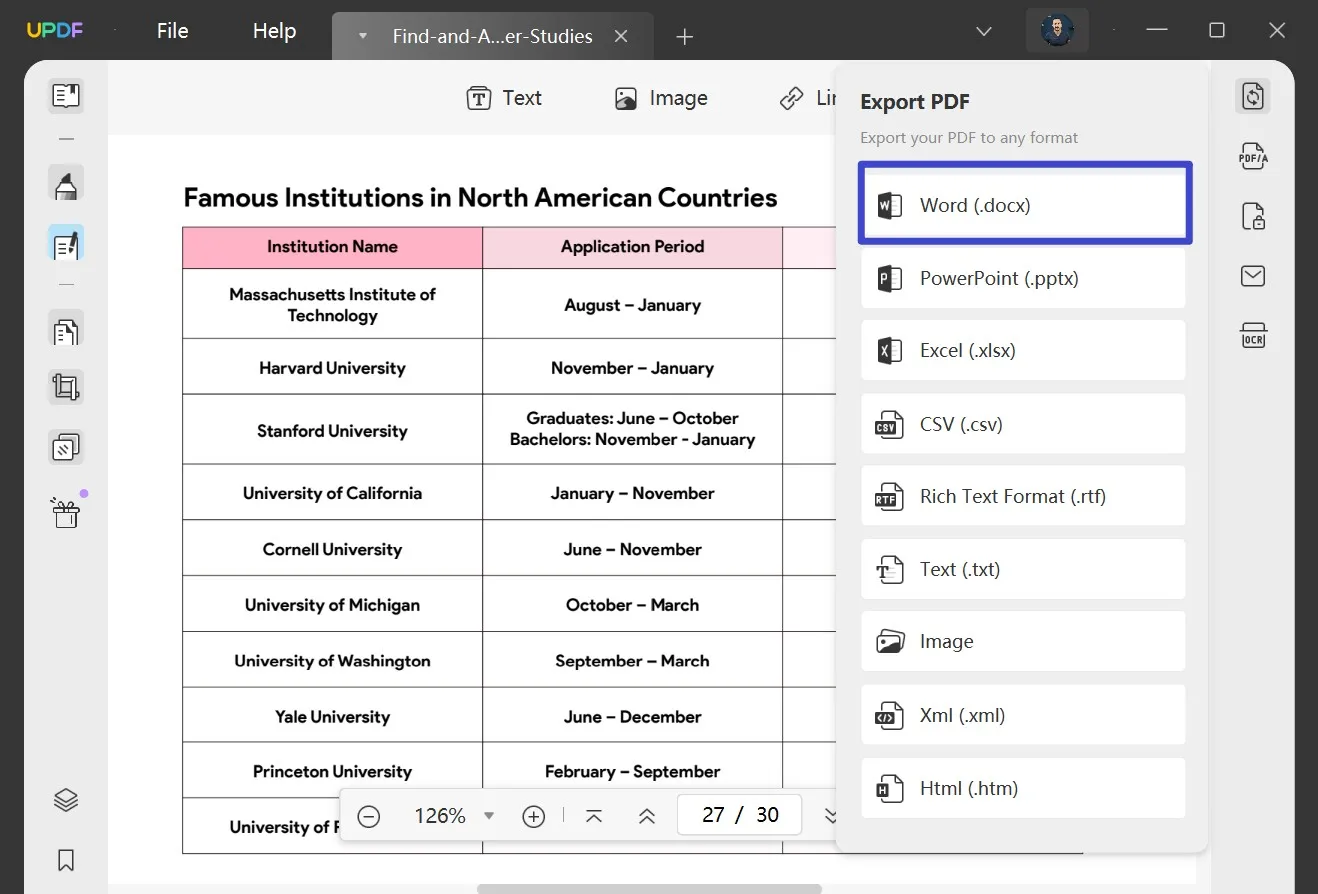
Method 3. Copy All Text from Protected Web Pages
Finally, the last method will help you copy text from multiple protected web pages.
Open UPDF and navigate to the home interface. Click on the "Batch" > "Convert". Now add your files by dragging and dropping them or clicking the "Add Files" button. Then select "Text (.txt)" and click "Apply". Wait for your files to be converted and copy the contents.
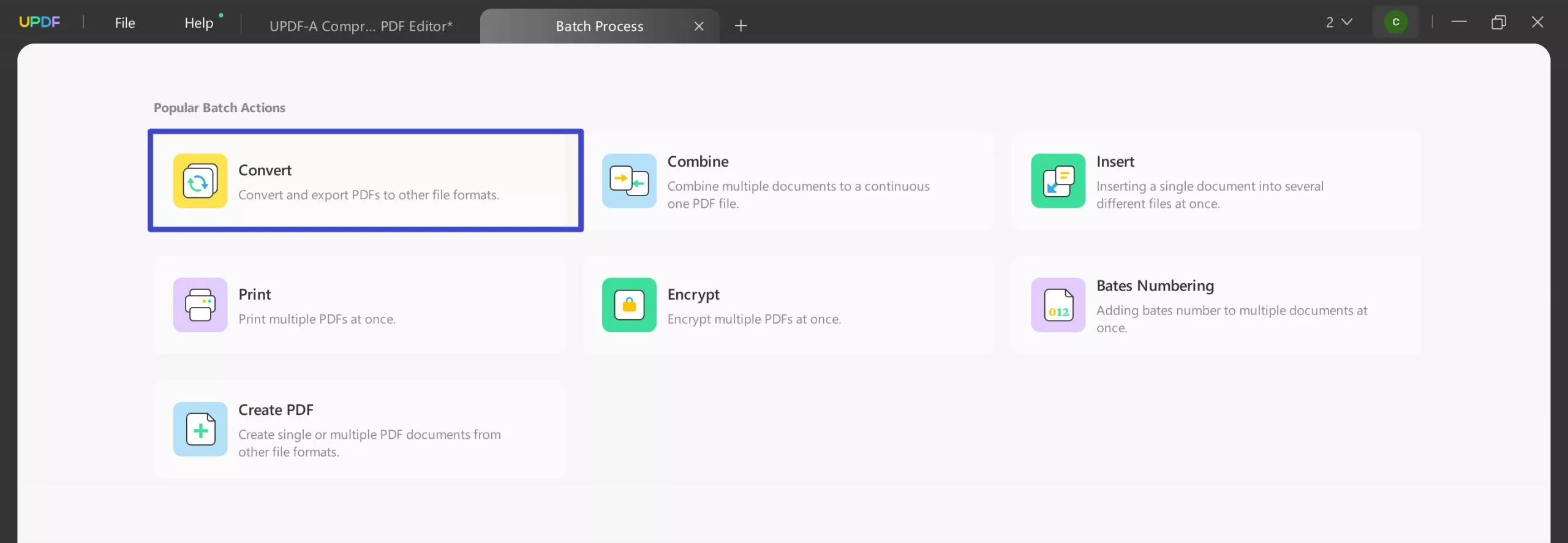
UPDF has a lot of other features apart from copying, converting and batch converting files. This includes editing PDFs, OCR, organizing PDFs, compressing PDFs, viewing PDFs, annotating PDFs, signing documents, password-protecting documents as well as generating content with UPDF AI.
You can download UPDF by clicking the button below. To learn more about the software, we recommend to watch this video:
Windows • macOS • iOS • Android 100% secure
Way 2. Copy Text from a Protected Web Page with Screenshot
Another method of copying text from a protected web page is taking a screenshot of it and then making it editable by using an OCR tool, for example, the one that UPDF has. This method is recommended when a website has embedded content that cannot be directly copied.
Simply take a screenshot of the protected web page and then open it in UPDF. You can open it by dragging onto the software's interface. Then navigate to the menu on the right side and click the OCR tool. Apply your preferred settings and click "Perform OCR". Now UPDF will convert your screenshot into an editable document that you will be able to copy the text from.
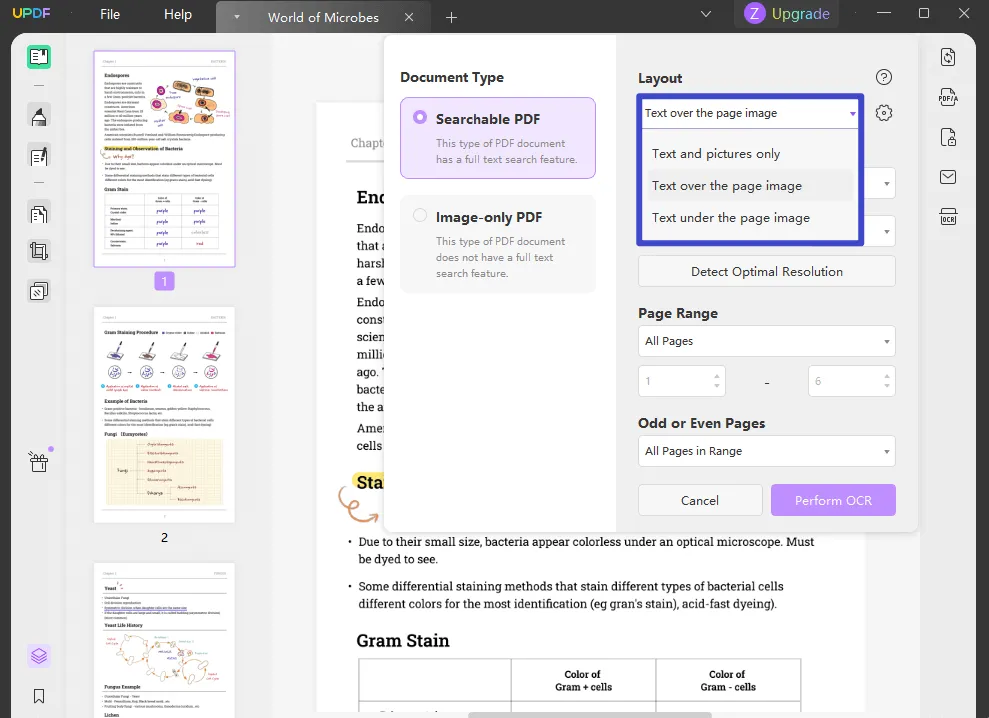
You can download UPDF and upgrade to the pro version to try the OCR feature by clicking the button displayed below.
Windows • macOS • iOS • Android 100% secure
Way 3. Disable JavaScript
This method is useful when a website blocks the option of copying content through Javascript. You can bypass this protection by simply disabling JavaScript in your browser. Usually this can be done in a browser's settings.
Click the three-dot menu and then go to Settings > Privacy and security > Site settings.
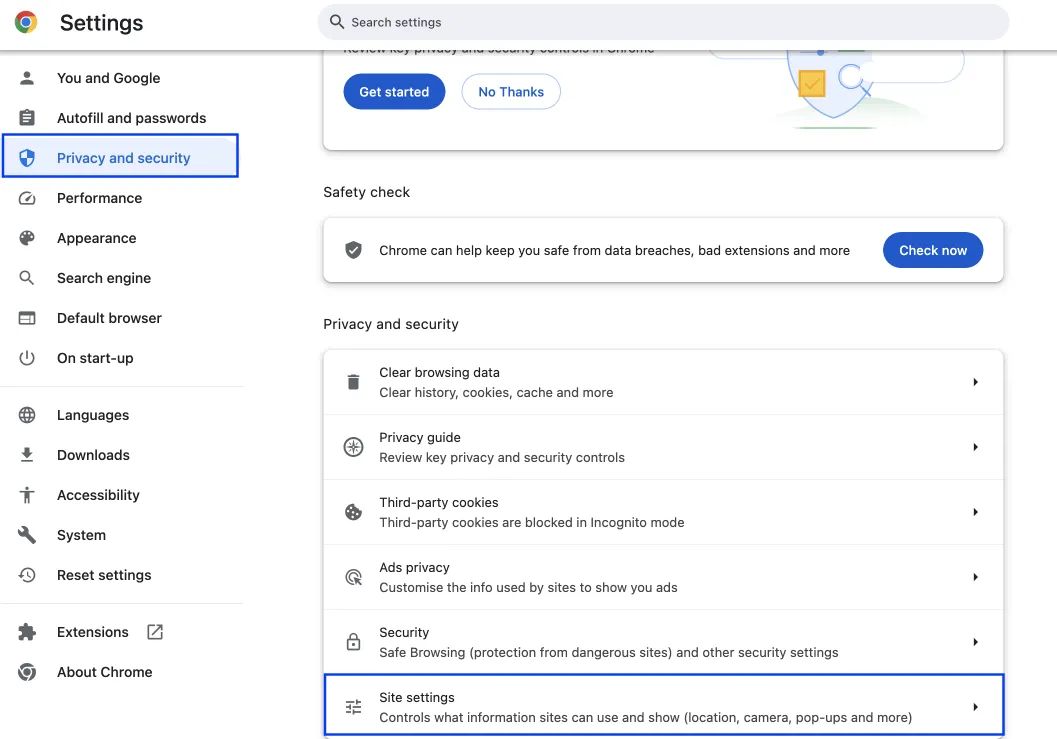
Scroll down and select "JavaScript" under the "Content" section.
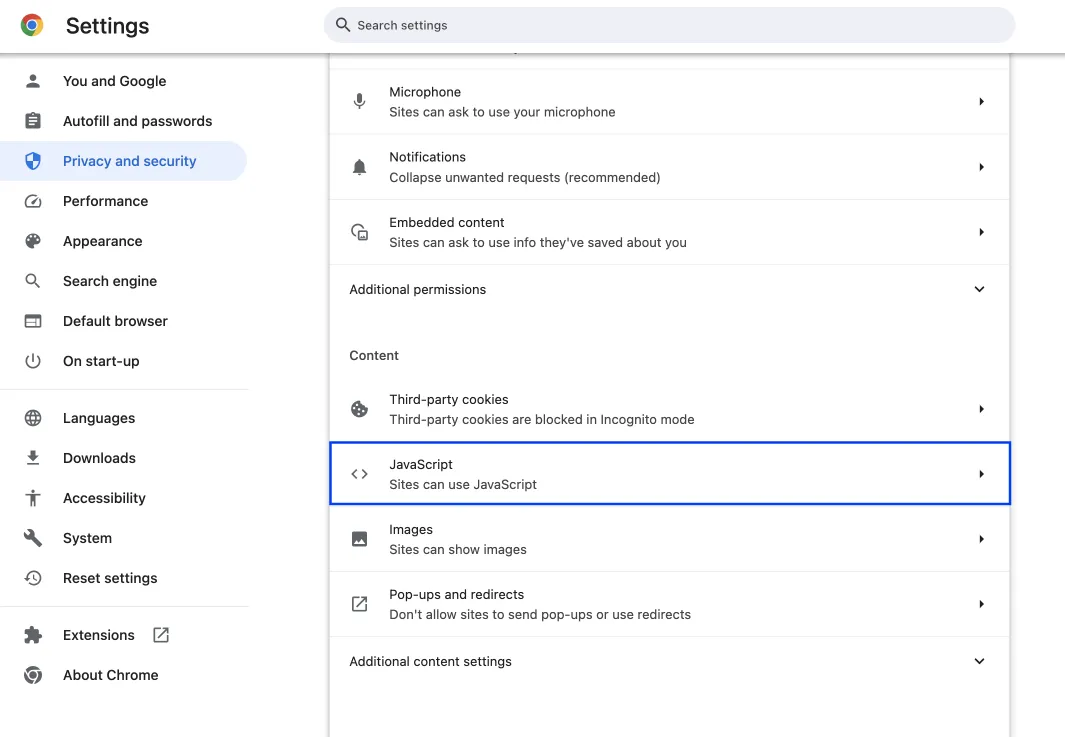
Now click "Don't allow sites to use JavaScript" if you want it to apply for every website. If you want to apply it to specific websites, you can add them by clicking "Add" under the "Customized behaviours" section. After applying these changes, you should be able to copy content from protected web pages.
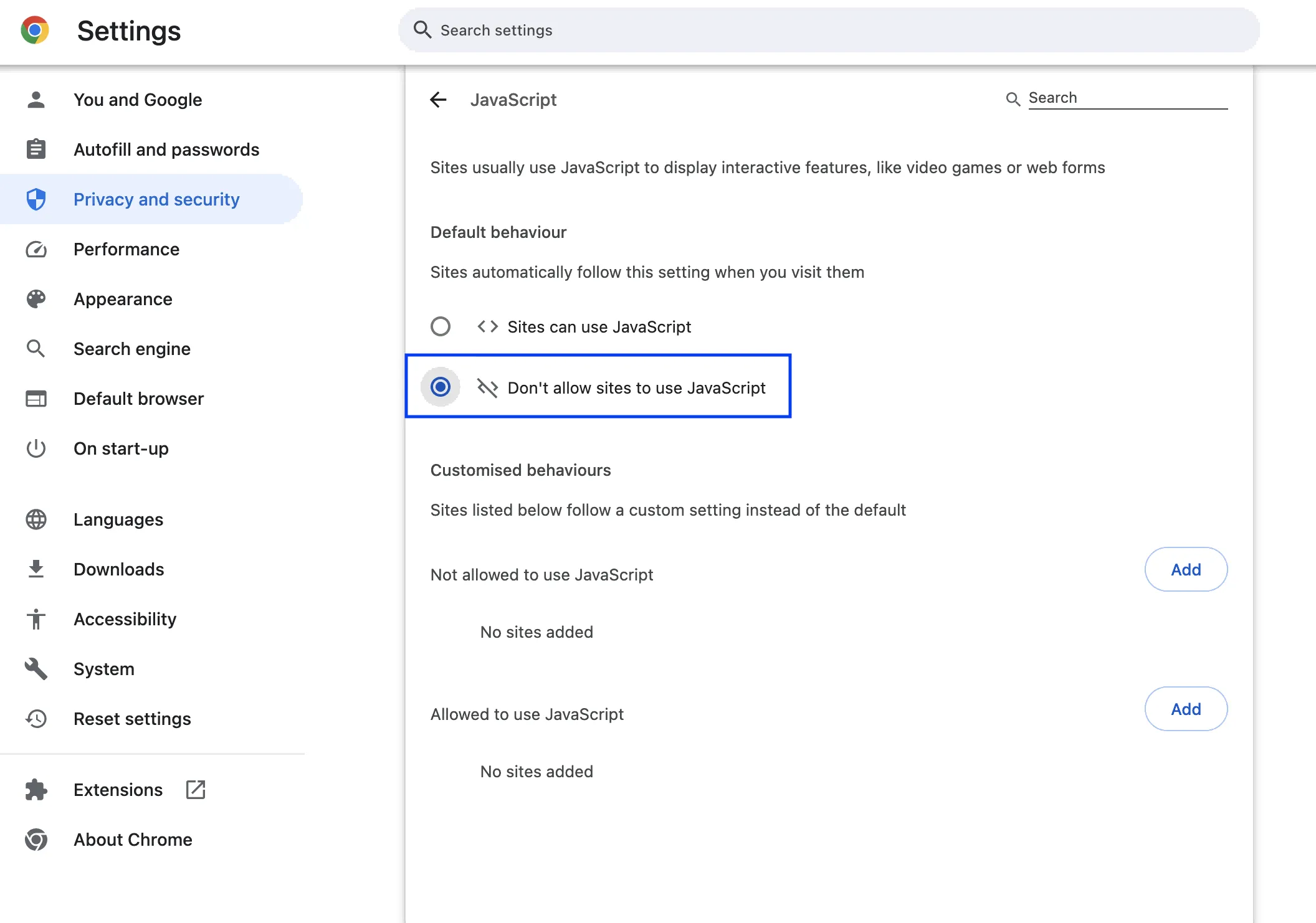
Way 4. Using a Chrome Extension
Another way of copying text from a protected web page is using a Chrome extension. This method is recommended if you frequently need to copy content from protected web pages as it will simplify the whole process and other tools won't be needed.
One of the most popular Chrome extensions is "Enable Right Click & Select: allow copy".
You can install it from the Chrome's Web Store for free here. Once you add it to your browser, go to a page that is restricted, enable the extension.
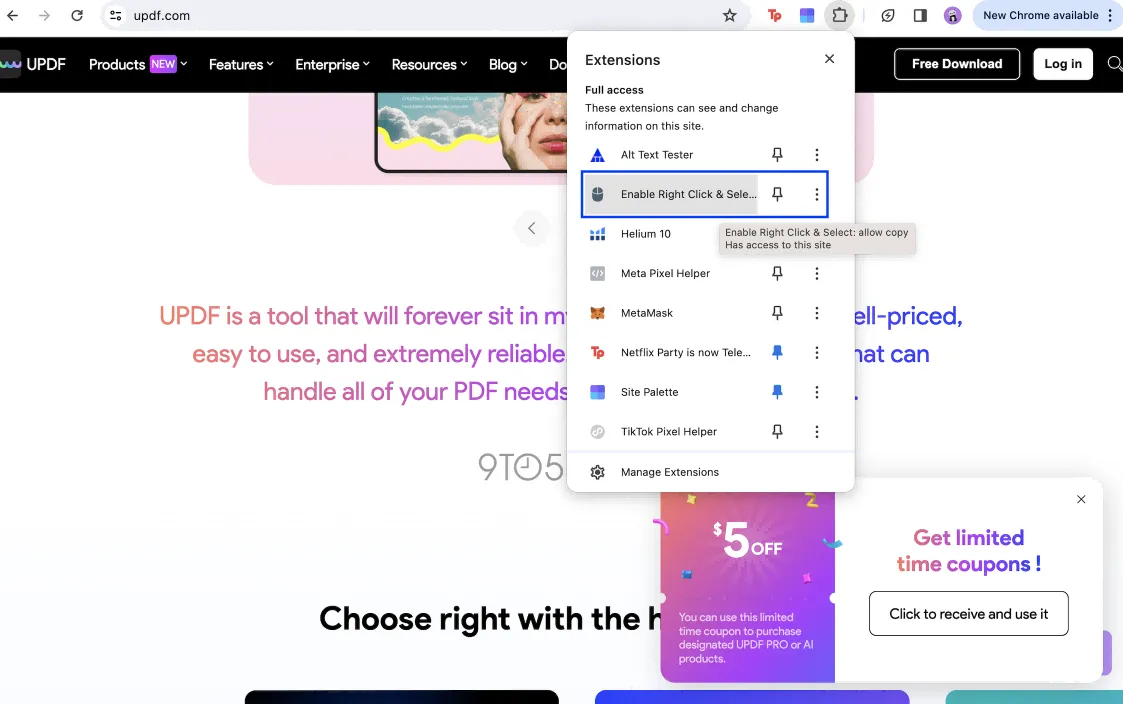
and then you will be able to right click and copy any text as well as save pictures from a website.
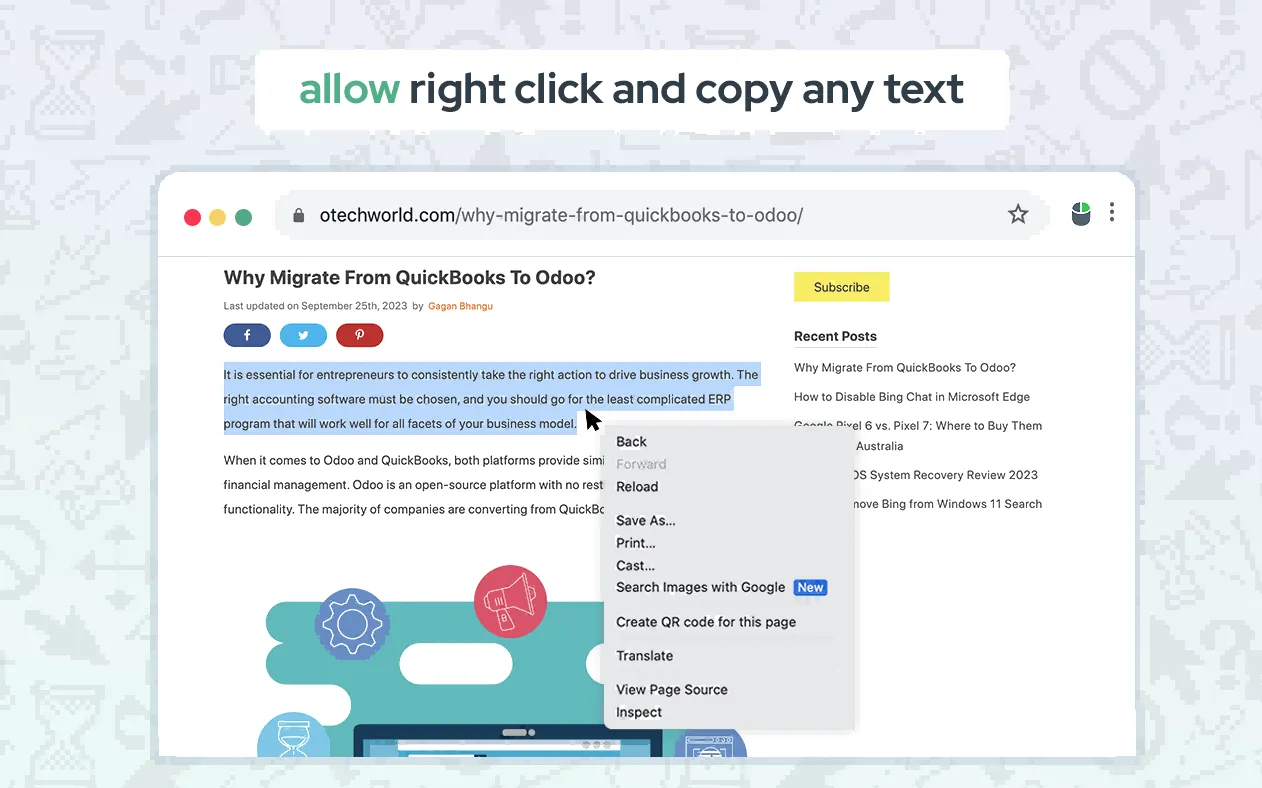
Final Words
We went over through various methods of how you can copy text from a protected web page with UPDF as well as other tools. Our team hopes that this guide will help you to successfully solve the problem and save information you may need for your work or studies. From copying content with a print feature, through taking screenshots to converting PDF files, all these methods have been reviewed by our team. Download UPDF now and start testing them out!
Windows • macOS • iOS • Android 100% secure
 UPDF
UPDF
 UPDF for Windows
UPDF for Windows UPDF for Mac
UPDF for Mac UPDF for iPhone/iPad
UPDF for iPhone/iPad UPDF for Android
UPDF for Android UPDF AI Online
UPDF AI Online UPDF Sign
UPDF Sign Read PDF
Read PDF Annotate PDF
Annotate PDF Edit PDF
Edit PDF Convert PDF
Convert PDF Create PDF
Create PDF Compress PDF
Compress PDF Organize PDF
Organize PDF Merge PDF
Merge PDF Split PDF
Split PDF Crop PDF
Crop PDF Delete PDF pages
Delete PDF pages Rotate PDF
Rotate PDF Sign PDF
Sign PDF PDF Form
PDF Form Compare PDFs
Compare PDFs Protect PDF
Protect PDF Print PDF
Print PDF Batch Process
Batch Process OCR
OCR UPDF Cloud
UPDF Cloud About UPDF AI
About UPDF AI UPDF AI Solutions
UPDF AI Solutions FAQ about UPDF AI
FAQ about UPDF AI Summarize PDF
Summarize PDF Translate PDF
Translate PDF Explain PDF
Explain PDF Chat with PDF
Chat with PDF Chat with image
Chat with image PDF to Mind Map
PDF to Mind Map Chat with AI
Chat with AI User Guide
User Guide Tech Spec
Tech Spec Updates
Updates FAQs
FAQs UPDF Tricks
UPDF Tricks Blog
Blog Newsroom
Newsroom UPDF Reviews
UPDF Reviews Download Center
Download Center Contact Us
Contact Us







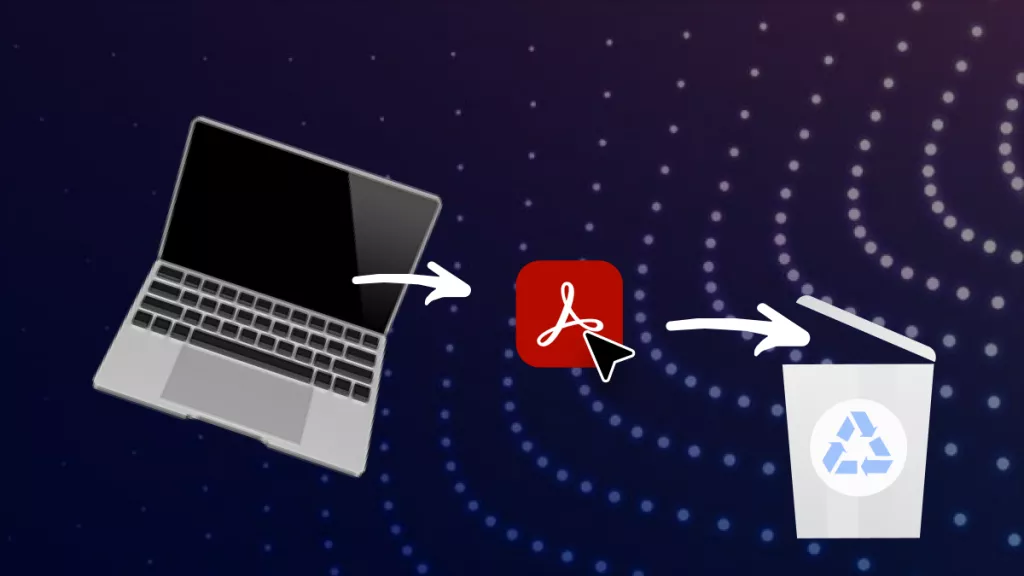


 Cathy Brown
Cathy Brown  Bertha Tate
Bertha Tate 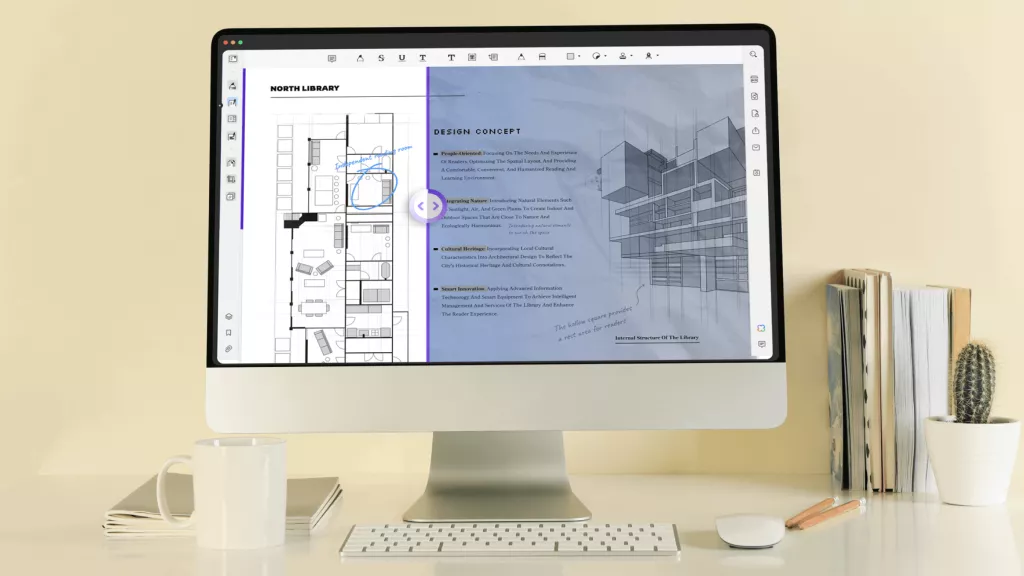

 Donnie Chavez
Donnie Chavez